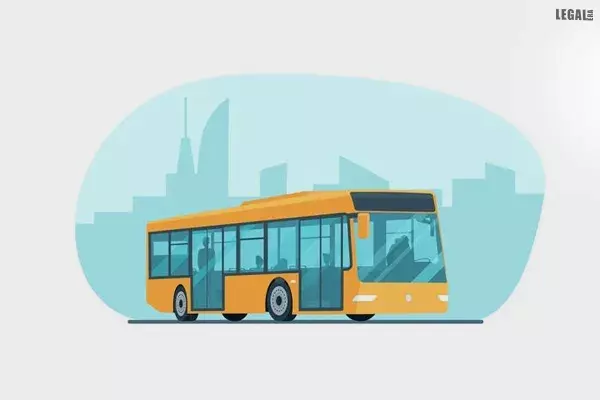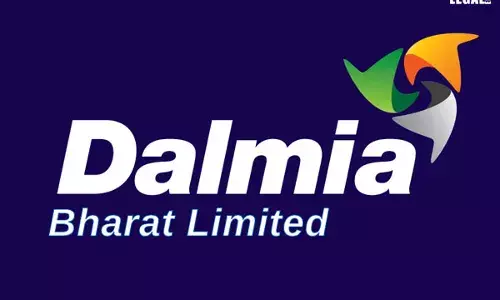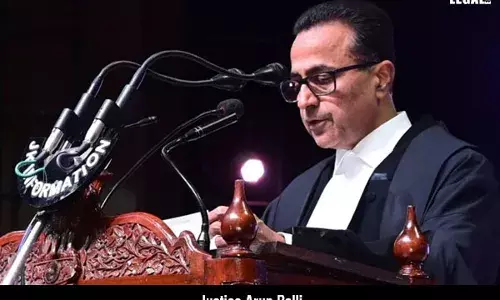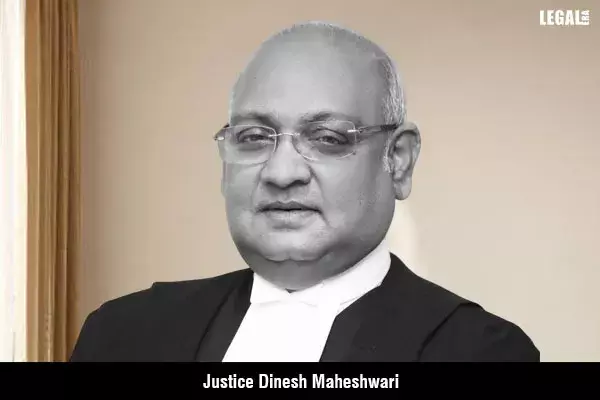Bombay High Court forbids Cenvat Credit, bus transport services was mere personal service to employees
The Cenvat Credit is disallowed by the Bombay High Court as employee transport services are merely personal services.;

Bombay High Court forbids Cenvat Credit, bus transport services was mere personal service to employees The Cenvat Credit is disallowed by the Bombay High Court as employee transport services are merely personal services. Solar Industries India Limited, an appellant, manufactures explosives in the Taluka and District of Nagpur at Mouza Chakdoh and Bazargaon. There is a factory in...
Bombay High Court forbids Cenvat Credit, bus transport services was mere personal service to employees
The Cenvat Credit is disallowed by the Bombay High Court as employee transport services are merely personal services.
Solar Industries India Limited, an appellant, manufactures explosives in the Taluka and District of Nagpur at Mouza Chakdoh and Bazargaon. There is a factory in close proximity to the said location where manufacturing activities are conducted. As a convenience to its employees, the appellant hired a bus through Hansa Travels to pick up its employees from a designated spot in Nagpur for dropping them off at the factory situated about 40 kms away. Hansa Travels, as a service provider, imposes service tax in the category of service operators and the appellant, after paying service tax, seeks to claim cenvat credit for that purpose.
Appellant's counsel, Mr Gopal Sawal, argued that the Authorities erred in holding that the appellant was not entitled to CENVAT credit after 1st April 2011. The interpretation of rule 2(1) of the said Rules ignored the fact that providing transportation facilities to employees from the designated place at Nagpur to the factory premises was directly related to the manufacturing activities of the appellant. No employee of the appellant used the services for their personal use or consumption; instead, they were performed as a part of the appellant's manufacturing activity. A facility of this nature would have hindered the appellant's manufacturing activity and thus was a basic necessity.
As counsel for the respondent, Mr S.N.Bhattad asserted that the Authorities had good reason to reject the cenvat credit beginning from January 1, 2011 onwards. His view was that input service could only be involved in activities or movement within the factory's premises and that transportation of employees from 40 kms away had no connection with the manufacturing process. In requesting attention to Clause (B) of Rule 2(1) of the said Rules, it was argued that the provision of transportation services for factory employees was not covered by the term "input services".
After considering the amended provisions, a division bench of Justice G.A. Sanap and Justice A.S.Chandurkar found that the Tribunal did not commit any error whatsoever in disallowing cenvat credit to the appellant after 1st April, 2011. This was merely a personal service provided to its employees, which cannot be considered as 'input service.'





